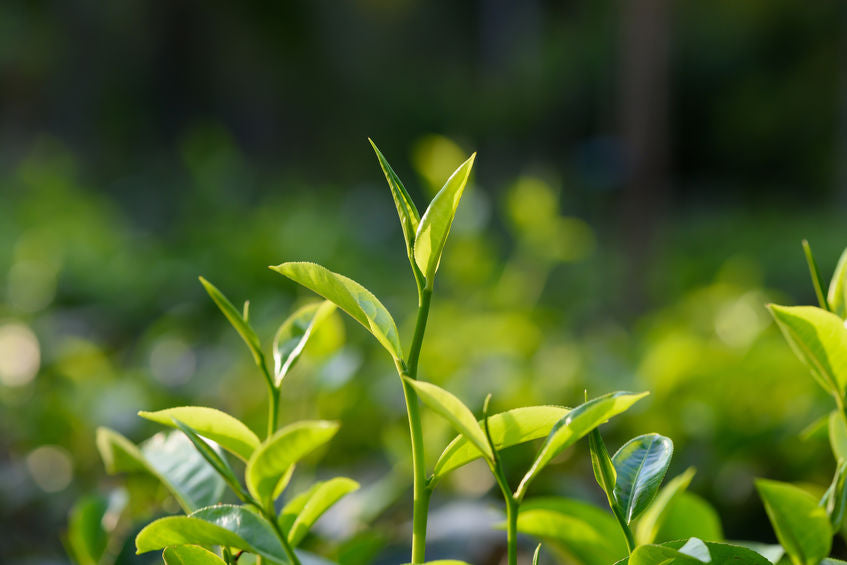
Can Drinking Green Tea Affect Your Fertility?

Archeological evidence suggests that tea leaves brewed in boiling water and consumed as many as 500,000 years ago. Botanical evidence indicates that India and China were among the first countries to cultivate tea.
Today, hundreds of millions of people drink tea around the world, and recent studies are now suggesting that one variety of tea, in particular, commonly known as green tea (Camellia sinensis) has many health benefits.
What Is Green Tea And How Is It Different?
There are three main varieties of tea — green, black, and oolong. Green, black, and oolong tea are all derived from the leaves of the Camellia sinensis plant. The difference between the teas is in their processing.
Green tea is unfermented leaves, the leaves of oolong tea are partially fermented, and black tea is fully fermented. The more fermented the leaves are, the lower the polyphenol content and the higher the caffeine content.
Green tea is made from unfermented leaves and is reputed to contain the highest concentration of polyphenols, chemicals that act as powerful antioxidants. Black tea has roughly two to three times the caffeine content of green tea.
Polyphenols contained in teas are catechins. Green tea contains six primary catechin compounds: catechin, gallocatechin, epicatechin, epigallocatechin, epicatechin gallate, and epigallocatechin gallate (also known as EGCG). EGCG is considered to be the most active component in green tea and is the best researched of all the green tea polyphenols. Green tea also contains alkaloids, including caffeine, theobromine, and theophylline. These alkaloids provide green tea’s stimulant effects.
Green tea contains roughly 30% to 40% polyphenols, while black tea contains only 3% to 10% polyphenols. Green and black teas are the same plants processed differently. This difference in processing results in more of the polyphenols being destroyed in the black teas. Green teas, therefore, seem to have more of the beneficial effects mentioned, but black teas still retain some of the benefits.
Why is Green Tea Good for You?
According to some of the doctors, switching over to green tea can help you lose weight, reduce the risk of heart disease and cancer, or maybe even get pregnant, if you’re a woman and so inclined.
The beneficial properties of green tea are primarily attributed to polyphenols, chemicals with potent antioxidant properties. The antioxidant effects of polyphenols appear to be higher than vitamin C.
The polyphenols in green tea also give it its somewhat bitter flavor. These polyphenols are associated with anti-cancer and anti-heart disease effects. Studies are still incomplete and inconclusive but are pointing strongly toward having a protective effect against these two deadly diseases.
In the past, women having difficulty conceiving might have been advised to limit their caffeine intake. But recent studies suggesting that stimulating drinks, and specifically green tea, might boost fertility.
In a study conducted at Kaiser Permanente Medical Care Program of Northern California in Oakland, researchers found that women who drank more than one-half cup of caffeinated green tea every day doubled their odds of conceiving. No significant association was found for other caffeinated beverages; therefore, researchers concluded that a chemical component of tea other than caffeine might have been responsible for the increase in fertility.
Because this conclusion opposes earlier findings that caffeine can inhibit fertility, the researchers acknowledge that their results may be attributable to green tea's association with other lifestyle factors that might enhance fertility such as smoking less, eating less fat and regular exercise.
What forms is green tea available in?
Most green tea products are sold as dried leaf tea. There are also extracts made from the leaves and leaf buds. The average cup of green tea contains about 50 to 150 mg polyphenols. Decaffeinated green tea products contain concentrated polyphenols (60% to 89% total polyphenols). Capsules and liquid preparations are also available.
Tags:
Getting Pregnant
Quick links
Search
Contact Us
Shipping Information
Helpful Info
Terms of Service
Privacy Policy
Do not sell my personal information
Contact us
About us
BabyHopes.com is a family owned and operated business, opened in January 2001. We have been serving the trying to conceive community for over 20 years.
